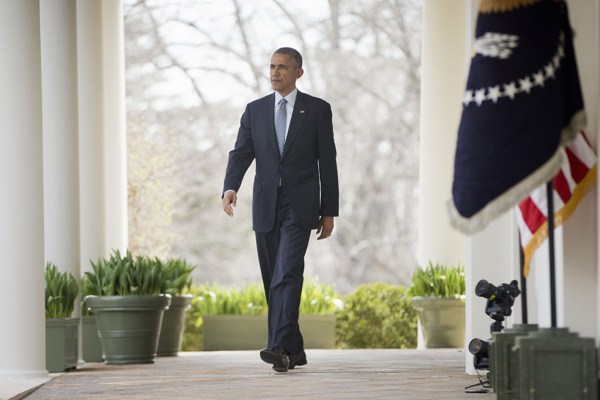Is U.S. President Barack Obama the last great Cold War statesman? Obama aspired to be a transformational figure in U.S. politics. Yet when it comes to international affairs, he often harks back to America’s old confrontation with the Soviet Union. Justifying the last-minute push for a nuclear deal with Iran last week, he borrowed a line from former President John F. Kennedy: “Let us never negotiate out of fear, but let us never fear to negotiate.”
After Iran agreed to the framework deal Thursday, Obama returned to the history books. Speaking at the White House, he quoted Kennedy again and summoned up two Republican predecessors. “The American people remember that at the height of the Cold War, presidents like Nixon and Reagan struck historic arms control measures with the Soviet Union,” he argued, adding that the Soviets had posed a far greater threat in their day than Tehran does now.
This sounds like the sort of historical padding that most politicians use to give their speeches gravitas. But Obama’s interest in the lessons of the Cold War clearly runs deeper than that. He has cited Reagan’s readiness to bargain with the Soviets as a model for dealing with Iran ever since he launched his bid for the White House in 2007. The president’s belief in the need for constructive diplomacy with America’s strategic competitors has guided not only his dealings with Tehran, but also his administration’s efforts to work with more potent global challengers. Obama has hammered away at a compromise with Russia over Syria despite innumerable setbacks, and he did not let growing tensions with China undercut talks on climate change.

